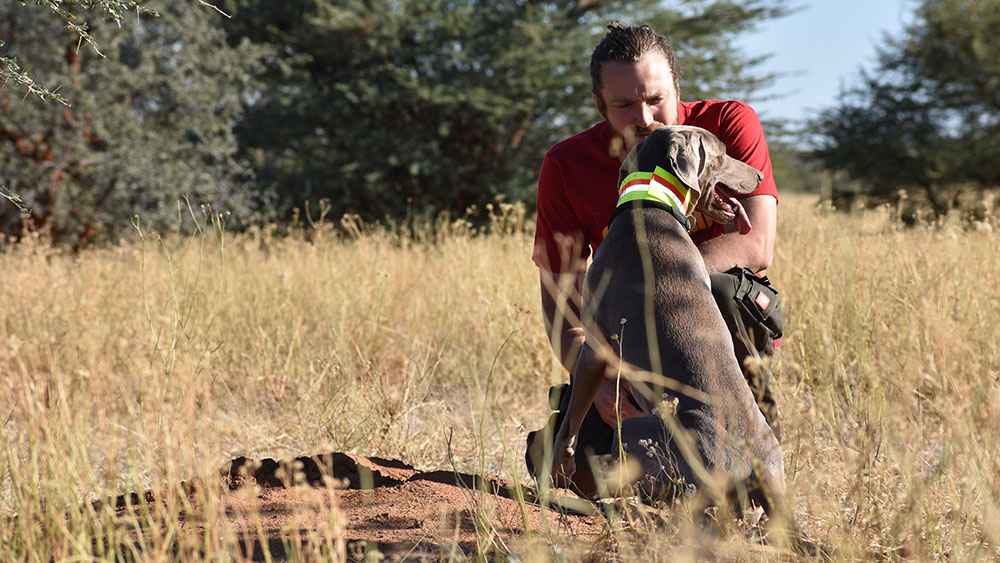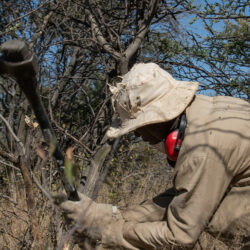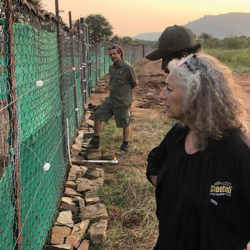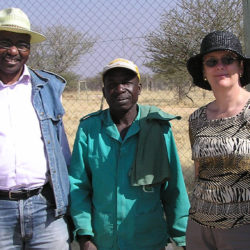Featured Staff – Tim Hofmann – Scat Dog Handler, Research Manager and Research Coordinator
-

- by Kylie Clark August 28, 2019

Tim was born near Frankfurt, Germany, where he was raised along with his older brother and younger sister. His mom was a veterinarian, so he enjoyed growing up with many dogs. He went to school close to Frankfurt, and later attended the University of Göttingen, where he studied forestry. He loved studying forestry because it is hands-on, and he was able to learn about all of the plants and animals in Germany. He attended the same university for graduate school, where he received a master’s in nature conservation biology. Tim changed his focus from forestry to conservation because he found that forestry is focused on economics, and he did not fully like that aspect of it. In his master’s program, he had many practical classes and was able to personalize his studies. Because of this, he spent a lot of time abroad while working toward his master’s, including many hands-on nature conservation projects.
Tim first came to CCF to collect the data for his master’s thesis. Upon returning home and writing his thesis, he remained in contact with CCF and was pleased to receive a job offer. He accepted the offer and returned to CCF as Scat Dog Researcher. This position includes training and handling the dogs, planning the searches, and curating and analyzing the data. Luckily his master’s thesis had led him in this exact direction, as it was on scat dogs. For his thesis, Tim investigated the different factors affecting a scat dog’s work. This included environmental factors, target abundance, and transect size. He chose to do his thesis on scat dogs because as a forestry major, he was required to have a hunting license per Germany’s regulations. This led him to learn about hunting dogs, and he found it extremely interesting to work with dogs who were not just pets but had a job to do. Tim got a hunting dog and trained the dog for hunting, but found he did not hunt often enough to entertain his dog. During his master’s, he connected with people who use dogs in conservation settings, including scat detection, and this helped him to choose to focus his master’s on scat dogs in Africa.
As the Scat Dog Researcher, Tim wakes up early and works the dogs before it becomes too hot. He does at least one search per day with either one of his dogs, and sometimes does two or more per day. After this, like most, Tim writes emails and reports and curates data in his office for some of the day. Luckily, he gets to spend most of the morning out with the dogs, and in the afternoon he goes out with the dogs again. Tim also goes on trips looking for scat all over Namibia and recently went to Angola. This involves a great deal of communication with farmers, which is pivotal in mitigating human-wildlife conflict situations. He has become extremely close with the scat dogs and was even able to bring over his own dog, Ole, from Germany to work with him as a scat dog. Tim loves his job because he is able to apply what he learned during school and gets to work hands-on with animals. He feels it is the perfect combination of science and field work, as he is able to not only collect data, but to then use the data for conservation.
Related Reading
-
April 3, 2023
Clearing the Land for Cheetahs -
October 4, 2022
Veterinary Work at CCF Needs Your Support -
August 11, 2022
Memorial for Jane Katjavivi




